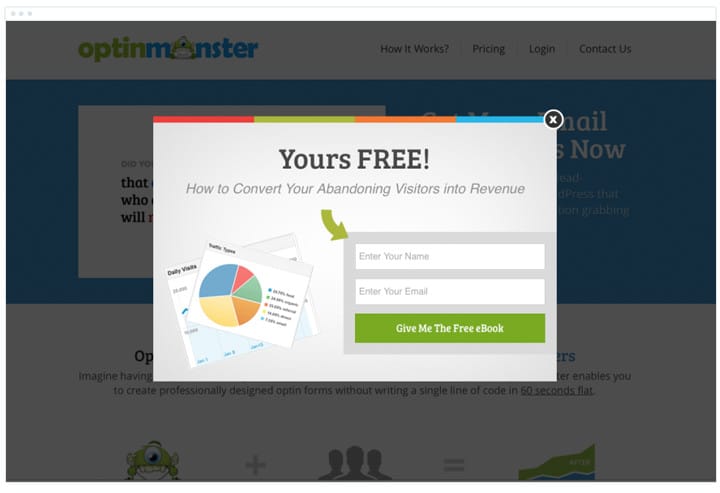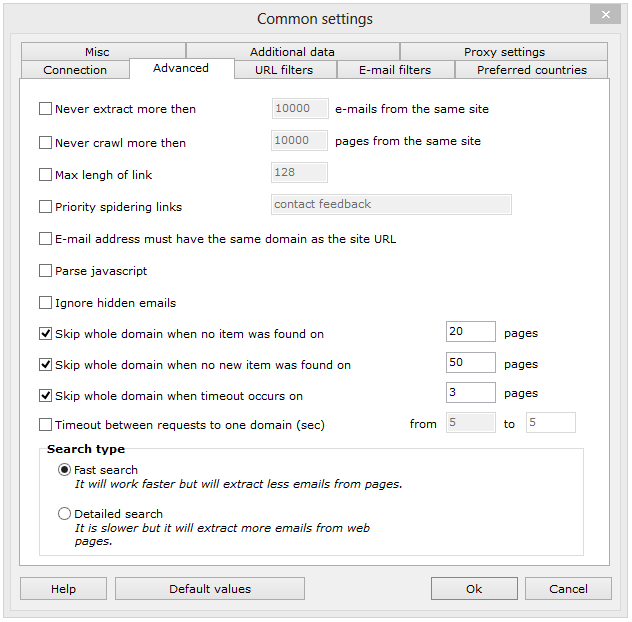Top Facts On Picking An Email List Site
Wiki Article
What Factors Should I Consider When Buying Cpa Email Lists?
To make sure that your CPA (Certified Public Accountant), email list is in compliance with the law, and is relevant and of high-quality, it's important to assess a few key factors. Here's what you need to take into consideration: 1. Data Quality and Accuracy
Verify where the data is sourced Find out where the data came from. The most reliable providers typically collect data from trusted sources, such as professional directories, trade associations or databases. Avoid lists compiled through scraping or other unreliable methods since they may contain inaccurate or outdated information.
Verification Process: Check that your email list has been recently verified. This reduces bounce rates and ensures that you're getting valid, active emails. Inquire how often the list is kept up-to-date and maintained, since CPAs can frequently change their jobs or companies.
Segmentation & Filters Segmentation & Filters CPA list that is good should include options such as segmentation by location (city state, country or city) and specialization in specific industries (e.g. auditing, taxation and financial planning) as well as the number of years of experience, firm size, etc. These elements can be utilized to increase the impact of marketing campaigns, allowing more targeted targeting.
2. Legal Regulations
Data Privacy Laws: Ensure that the email list is compliant with laws governing data protection, such as the General Data Protection Regulation (GDPR) and the California Consumer Privacy Act (CCPA) as well as any other local laws that are relevant. Lists should include email addresses that were legally obtained and have been acquired with the proper consent.
The CANSPAM Act is in compliance: The list used for U.S. commercial email campaigns must be in compliance to the CANSPAM Act. This includes the inclusion of opt-out options and the use of content that is not misleading or subject lines. Failure to comply can result in penalties and other legal issues.
Opt In Consent: Make sure you've obtained the email address via an opt-in consent. This means that the recipient who have agreed to be contact by third party. This decreases the chance of spam complaints. This also improves engagement.
3. Provider Reputation
Conduct thorough research about the credibility of a company. Look at reviews, testimonials and case studies to learn what other clients think. Established businesses tend to have more precise information.
Transparency. The provider should be clear about what data is used and when it is updated. If the company does not provide clear explanations of their method and procedures, then they're a red flag.
Customer Support is Important You'll need reliable customer support if your campaign needs assistance with customising the list and troubleshooting issues, or understanding the compliance rules. A solid support system will help you save time and energy throughout the campaign.
4. Cost and ROI
Pricing Models. Providers provide a variety of pricing models. Some charge for each contact while others offer per-contact fees or a subscription. Check the cost against the expected ROI, and balance cost against the quality of the list.
Refund Policy: Find out whether there is a procedure to refund or replace items in the event that a certain number of emails are incorrect or invalid. A guarantee can provide security.
Don't solely focus on cost. The cheapest lists might look attractive however, they could be prone to low engagement or bounce rates in the case of less quality. Make sure to choose lists with good data accuracy, segmentation and value.
5. Ownership and use of data
Multi-Use vs. Single-Use: Decide if you'll purchase the list just once or own it and utilize it for future campaigns. Owning a list is more flexible for long-term campaigns even though single-use lists are more expensive.
Shared vs. Exclusive lists: Determine whether the list of email addresses is exclusively yours or shared with multiple buyers. Shared Lists: Identify if the email list is only available to you or shared with other buyers. Shared lists could cause audience fatigue if the recipients are bombarded by marketing emails from other businesses.
6. Data Integration and Format
CRM Compatibility. Make sure your list is delivered in a format that is compatible with the CRM software you are using or to promote email marketing like CSV. This will allow for simple data management and import.
User-friendly: How easily can the information be segmented and managed once they are integrated into your systems? A well-organized list can make targeting and personalization more efficient.
7. Ethical Aspects
Relevance of Content CPAs are highly-skilled professionals, so it's important to send relevant, quality-driven content. In the event that you send out spammy or irrelevant messages, it could harm your reputation and lead to more complaints.
Do not send too many emails. Over-communication might lead to unsubscribes from your list or spam complaints. Both of these can have a negative impact on the reputation of your sender.
Also, you can read our conclusion.
When buying a CPA email list, you should consider the quality of the data, legal compliance, and the provider's reputation to ensure that your investment is profitable. The use of segmentation, targeting and ethical practices can increase engagement and boost ROI while maintaining the image of your company. Read the most popular cpa email list for website tips.

What Should I Consider When Buying An Physical Therapists Email List?
There are several factors you should consider when purchasing an email database of physical therapists. This will guarantee that the list is correct and legal, as well as efficient for outreach or marketing. Be aware of the following important factors. Data Quality and Accuracy
Source of Information: Be sure the email list provider gathers information from credible, authentic sources like professional associations (e.g., the American Physical Therapy Association) health directories, healthcare directories or licensing bodies. The email addresses are accurate and reliable.
Verification Process: Confirm the list provider's process for constantly updating and verifying the accuracy of the data. A trusted service provider will clean the list of email addresses regularly to eliminate any addresses that are inactive or invalid ones. This will increase deliverability, and reduce bounce rates.
Segmentation: A good list of physical therapists' emails will have segmentation. The filters could include locations (city/state/country) and years of expertise, areas of specialization (e.g. sports therapy, orthopedics or pediatrics) and practice type (private practice, rehab center or hospital). Segmentation is a way to reach the right audience by delivering targeted messages.
2. Legal Regulations
Data Privacy Laws – Ensure compliance with data privacy laws in your nation, such as the California Consumer Privacy Act and the General Data Protection Regulation. Data must be collected legally, and the individuals included in the list must have consented to it.
CAN-SPAM Law Compliance in the U.S., email marketing campaigns must be compliant with the CAN-SPAM Act. It mandates that emails contain opt-out options, precise subject lines, and a physical mailing address. If you ensure that your mailing list is in compliance with law, you will minimize the chance of legal and fines.
Opt-In Consent: Ensure the email list is comprised of people who have chosen to receive marketing messages. This means the physical therapists consented to receive marketing communications from third party. This also decreases the chance of spam complaints.
3. Provider Reputation
Reputable Provider: It is essential to choose a that has a good reputation for providing top-quality complete email lists. To ensure the provider's reliability and success, check for reviews, testimonials, and case studies.
Transparency: Providers need to be transparent about how they gather and update their data. If they cannot clearly explain the methods they use to collect data clearly, this could be a red flag that the data may be out of date or sourced through unreliable methods.
Customer Support: Ensure that the company has a good customer service team in the event that there's a problem with the lists or if you require assistance in the integration process or compliance. Fast customer service can help you reduce time and avoid possible issues.
4. Return on investment (ROI) and cost
Understanding the pricing model of the service provider is crucial. Certain providers charge according to the number or contacts made or the number of contacts made, while other providers may offer a flat-rate or subscription service. Check the cost against the expected ROI in order to find the most economical solution for your business.
Refund or Replacement Policy: Ask if the provider has a return or replacement policy in case a substantial portion of the email addresses are inactive or bounce. If the list does not match your expectations, this can safeguard your investment.
It is not advisable to select the database solely based on the price. A cheaper list could have unreliable or inactive email addresses. This can harm your campaign. Don't settle for the cheapest solution. Make sure you are focusing on quality and segmentation.
5. Ownership and Use of Data
If you are unsure, ask if it is an one-time-use list, or if your data can be used for future campaigns. While mailing lists for single-use are less expensive, you are less flexible in future outreach. Multi-use lists are more beneficial for long-term campaigns.
Exclusive or Exclusive. Shared Lists - Find out whether a list is yours or available to other buyers. Shared lists might have been overused which can lead to fatigue with emails that can decrease the rate of engagement.
6. Data Integration and Format
CRM Compatibility. Ensure your email list can be imported into a system such as Customer Relationship Management System (CRM), marketing platforms for email or CSV. This will allow you to manage and integrate the information.
Easy Use: A well maintained list should be simple for you to filter through and maintain. Making sure that you send out effective and personalized messages will be easier if you can quickly identify and focus on specific therapists using appropriate criteria.
7. Ethical Aspects
Relevance of Content Physical therapists are skilled professionals, and your marketing should be of value and have a purpose. Avoid messages that are generic or irrelevant as it can damage your reputation as a brand and reduce engagement rates.
Avoid Spam practices: Don't over-email people. Sending too much email can result in complaints about spam and possibly even unsubscribes. Also, it can damage your reputation as a sender.
Conclusion
When buying a physical therapy email list, consider the following factors: data quality as well as legal compliance. Also, look at the reputation of your provider. You should prioritize a list which offers segmentation and is frequently updated while also being compliant with the laws governing data privacy. A lead list that is high-quality can improve your targeting and engagement. It can also boost the value of your marketing investment. Follow the most popular physical therapists email list for site recommendations.
